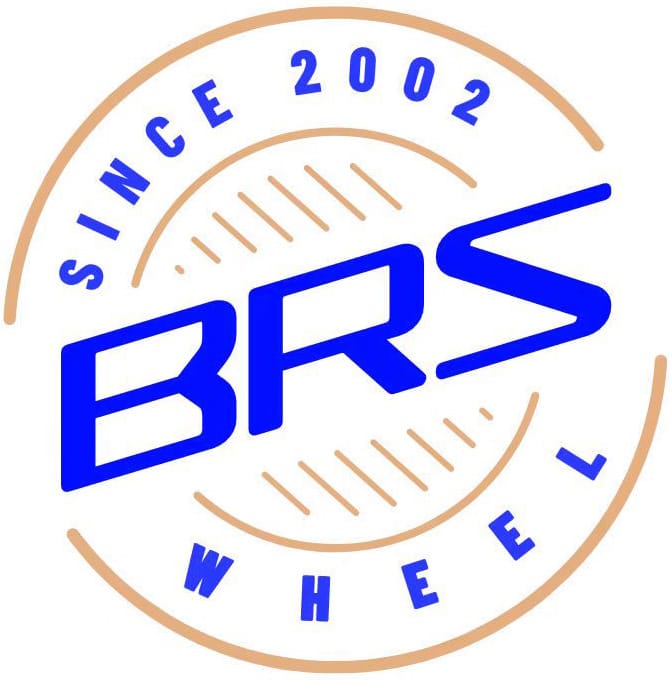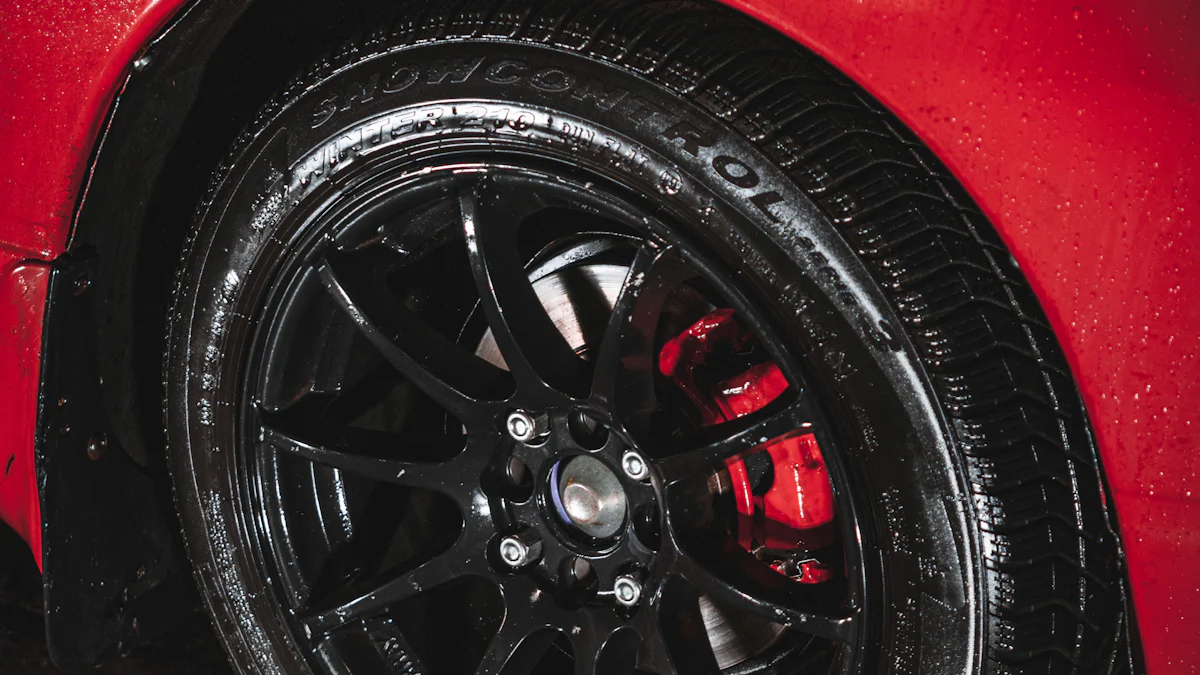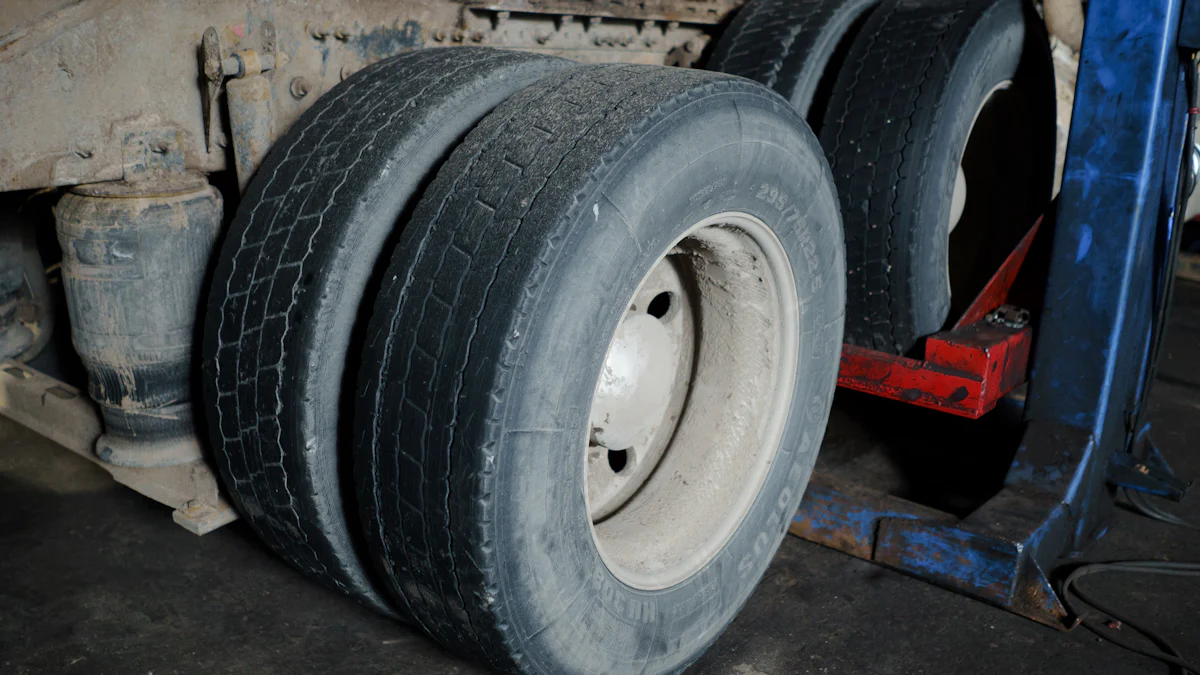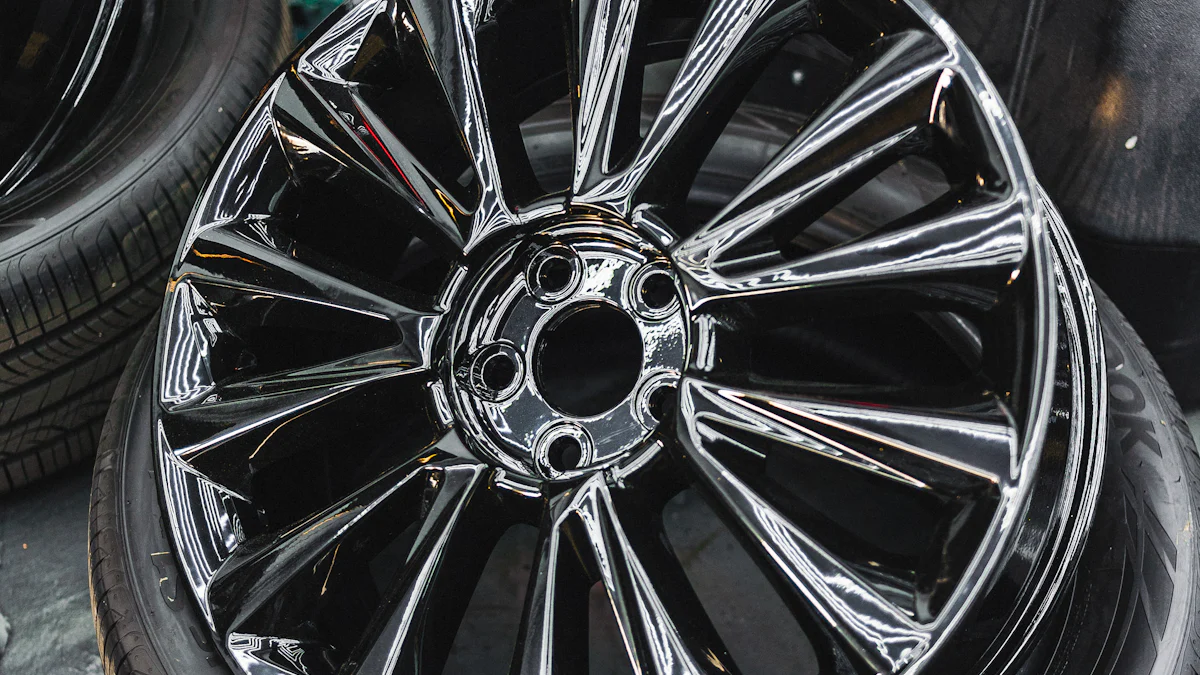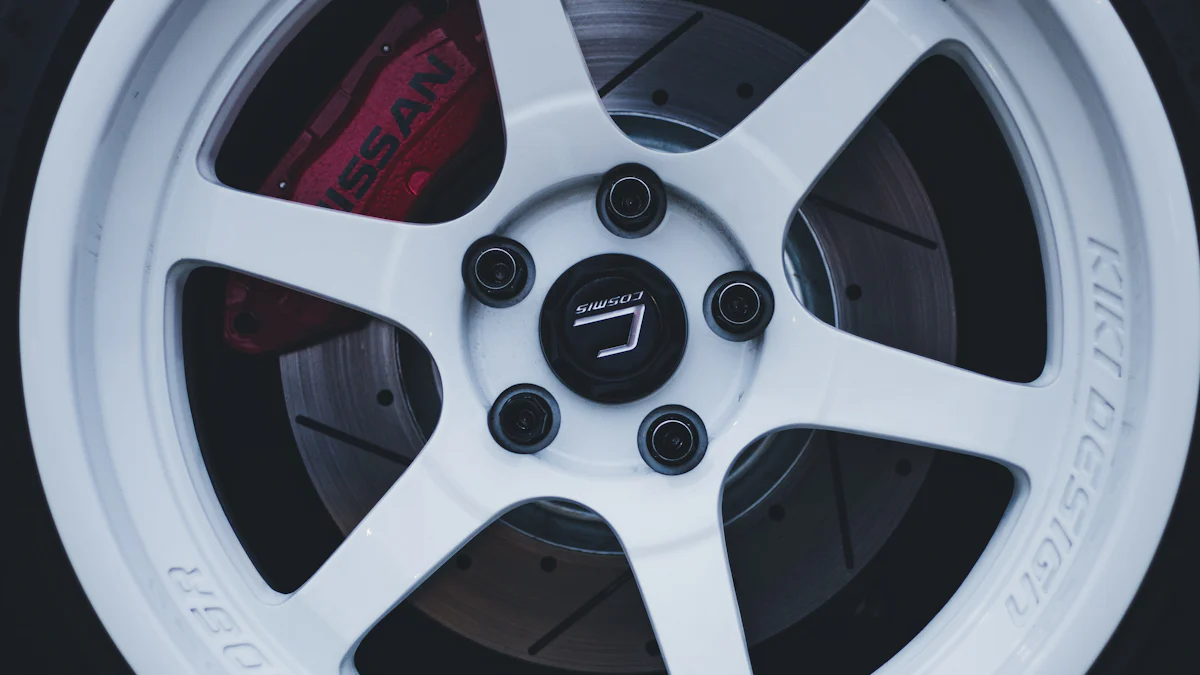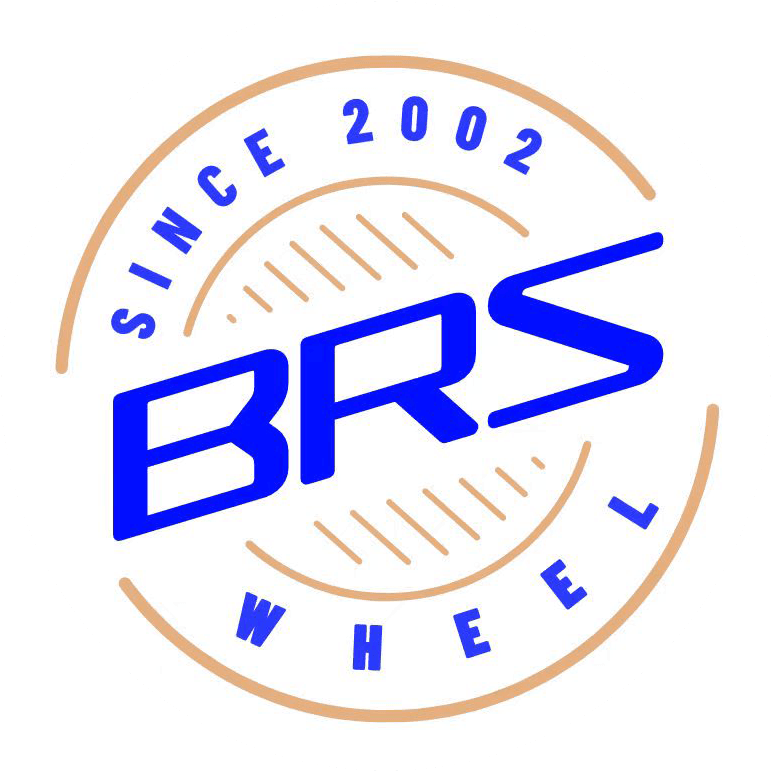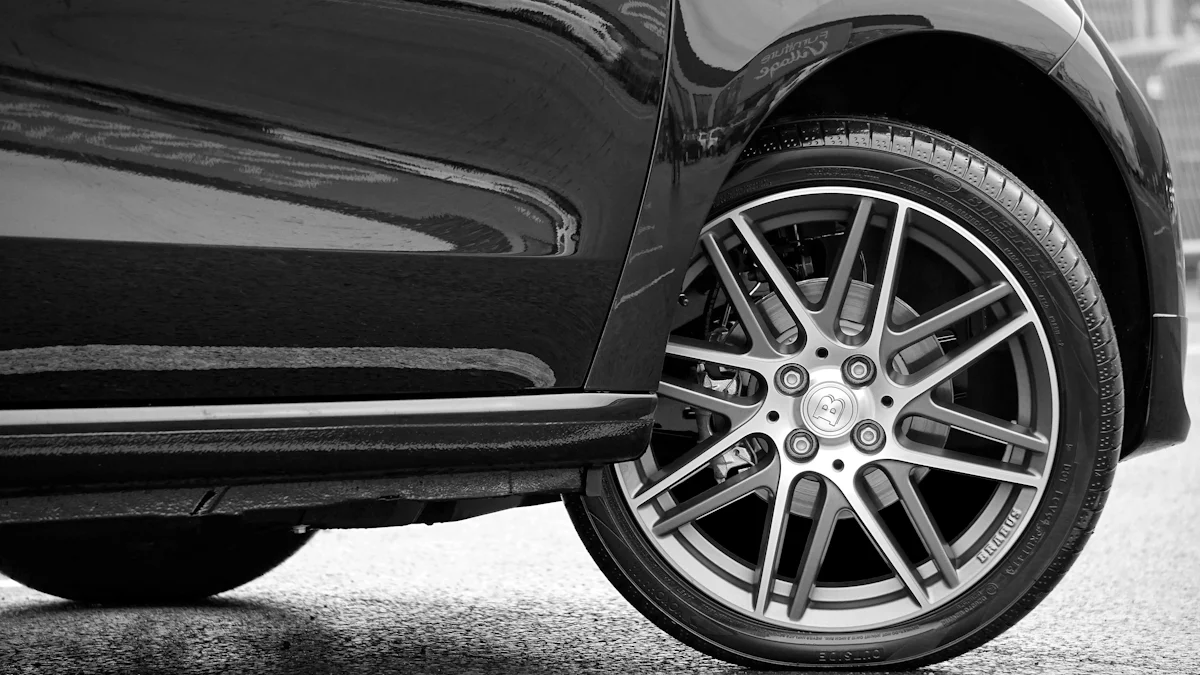
Selecting the right 18×8 wheel for your vehicle requires careful consideration. You need to ensure compatibility with your car’s specifications, such as bolt pattern and offset, to achieve a proper fit. This choice directly impacts safety, performance, and aesthetics. For example, an 18×8 wheel paired with a 235/40 tire can enhance handling and ride quality. Additionally, if you plan to lower your vehicle or upgrade the brake system, this wheel size often provides the ideal balance between functionality and style. Making an informed decision ensures your vehicle performs at its best while looking great.
Key Takeaways
- Ensure compatibility by checking your vehicle’s bolt pattern, offset, and load capacity before purchasing 18×8 wheels.
- A proper fit enhances safety and performance, preventing issues like vibrations and rubbing against suspension components.
- Choose the right tire size (typically 225/40 to 245/40) to match your 18×8 wheels for optimal handling and ride quality.
- Consider your driving needs—whether for daily commuting or performance driving—to select the most suitable wheel type.
- Invest in high-quality wheels from reputable brands to ensure durability and long-term performance.
- Explore customization options to personalize your wheels, enhancing both aesthetics and functionality.
Regular maintenance is essential to prolong the life of your 18×8 wheels.
Importance of Proper Fit for 18×8 Wheels
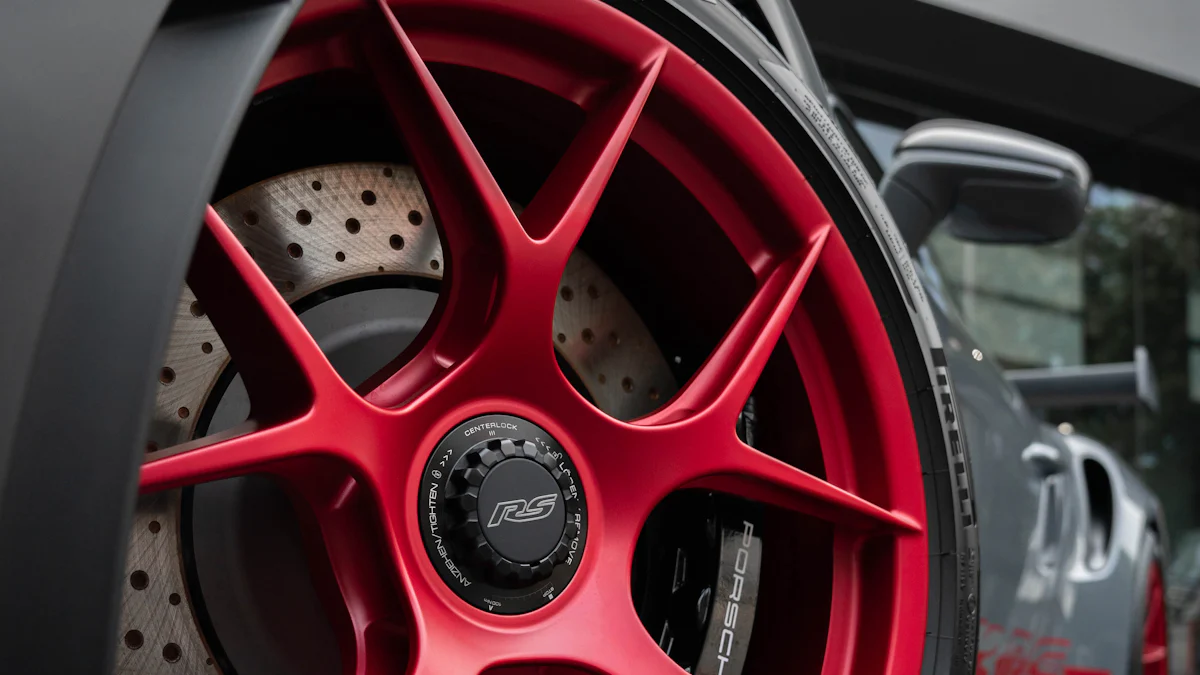
Why Fit Matters
Ensuring the proper fit of an 18×8 wheel is crucial for your vehicle’s safety and performance. A well-fitted wheel aligns perfectly with your car’s specifications, such as bolt pattern, offset, and load capacity. This alignment prevents unnecessary strain on suspension components and ensures smooth handling. Proper fit also allows for optimal tire rotation, which extends tire life and maintains handling balance. For example, when wheels fit correctly, you can rotate tires between the front and rear axles without compromising performance.
A precise fit enhances driving stability. It minimizes vibrations and ensures that the wheels do not rub against suspension parts or the vehicle body. Even a small millimeter difference in fitment can lead to significant issues. For instance, aftermarket wheels with incorrect offsets may cause rubbing problems, especially during sharp turns or when driving over uneven surfaces. Properly fitted wheels also meet safety standards, including load capacity and lateral impact requirements, ensuring your vehicle remains reliable under various conditions.
Consequences of Poor Fit
Using improperly fitted wheels can lead to a range of problems that affect both safety and performance. One common issue is vibration, which occurs when the wheel does not sit flush against the hub. This imbalance can make driving uncomfortable and even dangerous at high speeds. Poor fitment may also result in the wheels rubbing against suspension components or the vehicle’s body, causing damage over time. Such rubbing can occur when the offset or bolt pattern does not match your car’s specifications.
In addition to physical damage, improper fitment can compromise your vehicle’s handling. Wheels that are too heavy or incorrectly aligned can reduce responsiveness and make steering less precise. This loss of control becomes particularly hazardous during emergency maneuvers. Furthermore, poorly fitted wheels may fail to meet safety standards, increasing the risk of accidents. For example, wheels that do not meet load capacity requirements may buckle under stress, leading to catastrophic failures while driving.
“Even a small millimeter difference in wheel fitment can lead to disastrous consequences when driving.” This highlights the importance of choosing wheels that match your vehicle’s exact specifications.
By prioritizing proper fit, you ensure that your 18×8 wheels enhance your vehicle’s safety, performance, and longevity. Always consult your vehicle’s manual or a professional to confirm compatibility before making a purchase.
Key Factors to Consider When Choosing an 18×8 Wheel
Bolt Pattern and Offset
The bolt pattern and offset are critical when selecting an 18×8 wheel. The bolt pattern refers to the arrangement of the lug holes on the wheel, which must align perfectly with your vehicle’s hub. For example, the Konig Oversteer wheel features a 5×112 bolt pattern, making it compatible with vehicles that share this specification. Always verify your car’s bolt pattern before purchasing to avoid fitment issues.
Offset determines how far the wheel sits from the hub mounting surface. A positive offset places the wheel closer to the vehicle’s body, while a negative offset pushes it outward. The Voxx Wheels Capo Carbon Grey has an offset of 45 mm, which is ideal for many modern vehicles. Choosing the correct offset ensures proper alignment, prevents rubbing against suspension components, and maintains optimal handling. For instance, BMW’s E82/E88 1 Series recommends offsets like ET40 or ET45 for an 18×8.5 wheel, ensuring a balanced fit.
Material and Construction
The material and construction of a wheel significantly impact its performance and durability. Most 18×8 wheels are made from either steel or alloy. Steel wheels are robust and cost-effective, but they tend to be heavier. Alloy wheels, on the other hand, offer a lighter weight and better heat dissipation, which improves braking performance. For example, the Konig Oversteer is a one-piece alloy wheel, combining strength with reduced weight for enhanced driving dynamics.
Construction quality also matters. High-quality wheels undergo rigorous testing to meet safety standards. Look for certifications like IATF 16949, which ensures adherence to strict automotive industry requirements. Investing in well-constructed wheels reduces the risk of cracks or failures, especially under high-stress conditions.
Tire Compatibility
Tire compatibility plays a vital role in achieving the perfect fit for your 18×8 wheel. The tire’s width and aspect ratio must align with the wheel’s specifications to ensure safety and performance. For an 18×8 wheel, tire widths typically range from 225 mm to 245 mm. A 235/40 tire, for instance, is a popular choice that balances comfort and handling.
Matching the tire’s load index and speed rating with your vehicle’s requirements is equally important. Incorrect tire pairing can lead to uneven wear, reduced fuel efficiency, and compromised handling. Always consult your vehicle’s manual or a professional to confirm the best tire size for your chosen wheel.
“Proper tire compatibility enhances ride quality and ensures your vehicle performs at its peak.”
By considering these factors—bolt pattern and offset, material and construction, and tire compatibility—you can confidently select an 18×8 wheel that meets your needs. This attention to detail ensures a safe, stylish, and high-performing upgrade for your vehicle.
Driving Needs
Your driving needs play a significant role in determining the right 18×8 wheel for your vehicle. The way you use your car—whether for daily commuting, spirited driving, or off-road adventures—affects the type of wheel that will best suit your requirements.
For daily commuting, prioritize wheels that offer durability and comfort. An 18×8 wheel like the Voxx Wheels Capo Carbon Grey, with its 45 mm offset and 6.22″ backspace, provides a balanced fit for smooth handling and stability. This setup ensures a comfortable ride while maintaining fuel efficiency, making it ideal for city or highway driving.
If you enjoy spirited driving or performance-focused activities, opt for lightweight wheels that enhance handling and acceleration. The Konig Oversteer, a one-piece alloy wheel, combines strength with reduced weight. Its 18×8 size and 5×112 bolt pattern ensure compatibility with many performance vehicles, while the 45 mm offset supports precise steering and cornering. This wheel is perfect for drivers who demand agility and responsiveness on winding roads or tracks.
For vehicles used in diverse conditions, such as occasional off-road trips or heavy loads, consider wheels with robust construction. Steel wheels are a practical choice due to their strength and resistance to damage. However, alloy wheels like the Konig Oversteer also perform well in such scenarios, offering durability without compromising weight.
When selecting an 18×8 wheel, always match it to your specific driving habits. For instance, if you drive a BMW E82/E88 1 Series, the recommended offsets (ET40 or ET45) ensure optimal performance and safety. These offsets prevent rubbing and maintain proper alignment, even during aggressive driving or when carrying additional weight.
By aligning your wheel choice with your driving needs, you can enhance your vehicle’s performance, safety, and overall driving experience. Always consult a professional or refer to your vehicle’s manual to confirm the best fit for your lifestyle.
Style and Aesthetics of 18×8 Wheels
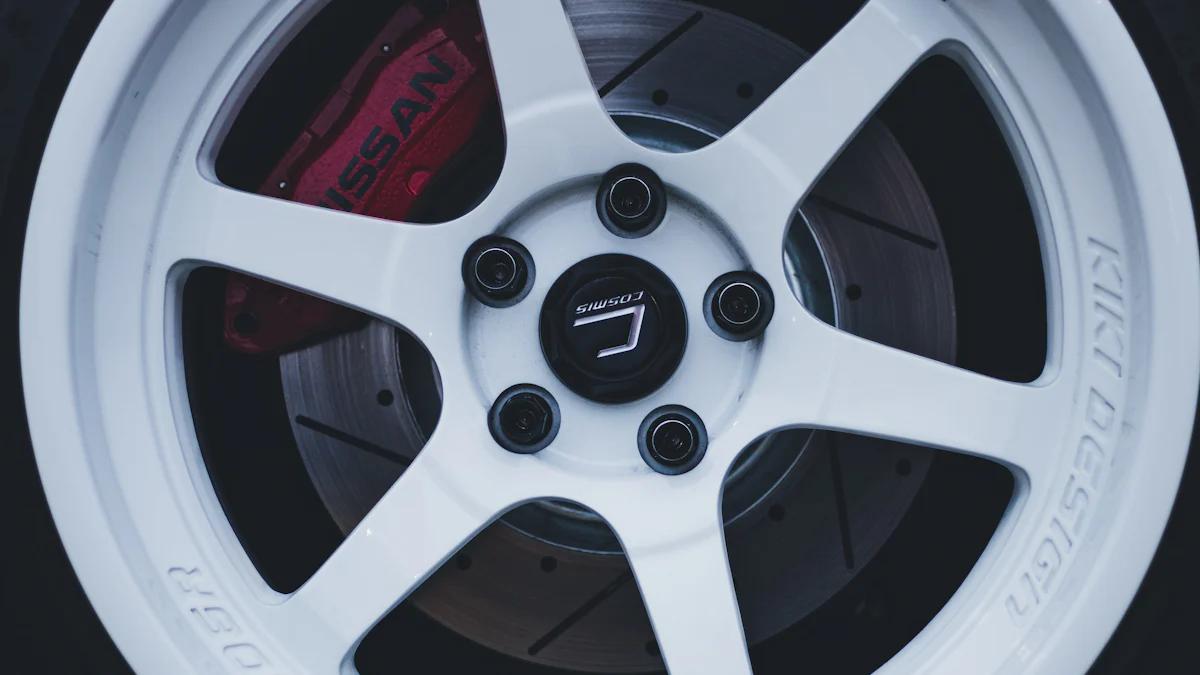
Choosing a Design
The design of your 18×8 wheel plays a significant role in defining your vehicle’s overall appearance. Wheels come in a variety of styles, ranging from classic to modern, allowing you to match them with your car’s personality. You can choose from spoke patterns like multi-spoke, split-spoke, or mesh designs. Each pattern offers a unique visual appeal. For example, multi-spoke wheels provide a sleek and sophisticated look, while mesh designs add a sporty and aggressive touch.
The finish of the wheel also impacts its aesthetic appeal. Popular finishes include gloss black, matte black, silver, and chrome. Gloss black wheels create a bold and striking appearance, while chrome finishes exude luxury and elegance. If you prefer a more understated look, matte black or silver finishes offer a clean and refined style. When selecting a design, consider how the wheel’s color and finish will complement your vehicle’s paint and trim.
Wheel size and proportions also matter. An 18×8 wheel strikes a balance between style and functionality, offering a proportional fit for most vehicles. This size enhances the car’s stance without appearing oversized or out of place. By carefully choosing a design that aligns with your preferences, you can elevate your vehicle’s aesthetics and make it stand out on the road.
Customization Options
Customization allows you to personalize your 18×8 wheel to reflect your unique style. Many manufacturers offer options for custom finishes, colors, and even engraving. You can select a custom color to match or contrast with your vehicle’s paint. For instance, a red wheel finish can add a bold accent to a black or white car, creating a striking visual effect.
Engraving is another popular customization option. Some brands allow you to add logos, text, or patterns to the wheel’s surface. This feature lets you showcase your personality or highlight a specific theme. For example, you could engrave your initials or a custom design on the wheel’s center cap for a personalized touch.
Custom offsets and bolt patterns are also available for those seeking a tailored fit. These adjustments ensure the wheel aligns perfectly with your vehicle’s specifications, enhancing both aesthetics and performance. Additionally, you can explore accessories like colored lug nuts, valve stem caps, or center caps to further customize your wheels.
By exploring these customization options, you can transform your 18×8 wheel into a unique statement piece. Whether you prefer subtle enhancements or bold modifications, customization offers endless possibilities to achieve the perfect look for your vehicle.
Budget and Quality for 18×8 Wheels
Balancing Cost and Durability
When selecting an 18×8 wheel, balancing cost and durability is essential. You want a wheel that fits your budget but also withstands daily wear and tear. Cheaper wheels may seem appealing, but they often compromise on material quality and construction. Investing in a well-made wheel ensures long-term performance and safety.
Steel wheels are a cost-effective option. They offer durability and strength, making them suitable for harsh conditions. However, they are heavier, which can slightly impact fuel efficiency and handling. Alloy wheels, while more expensive, provide a lighter alternative. Their reduced weight improves acceleration, braking, and overall driving dynamics. For example, alloy wheels like the Konig Oversteer combine lightweight construction with robust performance, making them a popular choice for drivers seeking quality and style.
Consider the long-term benefits of investing in a high-quality wheel. A durable wheel reduces the risk of cracks, bends, or failures, especially under challenging driving conditions. This reliability saves you money on repairs or replacements in the future. Additionally, high-quality wheels often come with certifications, such as IATF 16949, which guarantee adherence to strict safety and performance standards.
To make an informed decision, evaluate your driving needs and budget. If you primarily drive in urban areas, a mid-range alloy wheel may offer the best balance of cost and performance. For off-road or heavy-duty use, a sturdy steel wheel might be more practical. Always prioritize durability over initial savings to ensure your investment pays off in the long run.
Brand Reputation
The reputation of the brand plays a significant role in determining the quality of an 18×8 wheel. Established brands often have a proven track record of producing reliable and high-performing wheels. They invest in research, testing, and innovation to meet industry standards and customer expectations.
For instance, brands like Konig and Voxx Wheels are known for their commitment to quality and design. The Konig Oversteer wheel, with its lightweight alloy construction and stylish finish, exemplifies the brand’s dedication to performance and aesthetics. Similarly, the Voxx Wheels Capo Carbon Grey offers a perfect blend of durability and modern design, making it a trusted choice among car enthusiasts.
Choosing a reputable brand also ensures access to customer support and warranty services. These benefits provide peace of mind, knowing that you can rely on the manufacturer for assistance if needed. Additionally, well-known brands often offer a wide range of customization options, allowing you to personalize your wheels to match your vehicle’s style.
Researching customer reviews and expert opinions can help you identify trustworthy brands. Social media platforms and automotive forums are excellent resources for discovering popular designs and customization trends. For example, many Volkswagen Golf owners prefer the 18×8.5 5×112 ET45 fitment, which aligns with the specifications of reputable wheel manufacturers.
By selecting a wheel from a respected brand, you ensure quality, durability, and style. This choice enhances your vehicle’s performance and appearance while providing long-term value for your investment.
FAQs
1. What vehicles are compatible with 18×8 wheels?
18×8 wheels fit a wide range of vehicles, including sedans, SUVs, and sports cars. Compatibility depends on your vehicle’s bolt pattern, offset, and hub size. For example, many BMW, Audi, and Volkswagen models use 18×8 wheels with a 5×112 bolt pattern. Always check your vehicle’s specifications or consult a professional to confirm compatibility.
2. What tire size works best with 18×8 wheels?
The ideal tire size for 18×8 wheels typically ranges from 225/40 to 245/40. A 235/40 tire is a popular choice, offering a balance of comfort, handling, and performance. The correct tire size ensures proper fitment, enhances ride quality, and prevents issues like rubbing or uneven wear.
3. How do I determine the correct offset for my vehicle?
Offset refers to the distance between the wheel’s mounting surface and its centerline. Positive offsets bring the wheel closer to the vehicle’s body, while negative offsets push it outward. To find the right offset, check your vehicle’s manual or use an online fitment calculator. For instance, a BMW E82 1 Series often requires an offset of ET40 to ET45 for 18×8 wheels.
4. Are alloy wheels better than steel wheels?
Alloy wheels are lighter and more stylish than steel wheels. They improve handling, braking, and fuel efficiency due to their reduced weight. Steel wheels, however, are more durable and cost-effective, making them suitable for harsh conditions. Your choice depends on your driving needs and budget.
5. Can I customize the design of my 18×8 wheels?
Yes, many manufacturers offer customization options. You can choose custom finishes, colors, and even engravings. Popular finishes include gloss black, matte black, and chrome. Custom offsets and bolt patterns are also available to ensure a perfect fit for your vehicle.
6. How do I maintain my 18×8 wheels?
Regular cleaning prevents dirt, brake dust, and road grime from damaging your wheels. Use a mild soap and water solution with a soft brush to clean the surface. Avoid harsh chemicals that can harm the finish. Inspect your wheels periodically for cracks, bends, or other damage to ensure safety and longevity.
7. Do 18×8 wheels affect fuel efficiency?
Yes, wheel size and weight can impact fuel efficiency. Larger and heavier wheels may increase rolling resistance, leading to slightly lower fuel economy. Alloy wheels, being lighter than steel, help minimize this effect. Choosing the right tire size and maintaining proper inflation also improves fuel efficiency.
8. Are 18×8 wheels suitable for winter driving?
18×8 wheels can perform well in winter when paired with the right tires. Winter tires with a narrower width, such as 225/45, provide better traction on snow and ice. Steel wheels are often preferred for winter use due to their durability and resistance to harsh conditions.
9. How do I know if my 18×8 wheels are balanced?
Unbalanced wheels cause vibrations, especially at higher speeds. A professional wheel balancing service ensures even weight distribution around the wheel. Signs of imbalance include uneven tire wear, steering wheel vibrations, or a bumpy ride. Regular balancing improves safety and extends tire life.
10. Where can I buy high-quality 18×8 wheels?
You can purchase 18×8 wheels from reputable manufacturers or authorized dealers. Brands like Konig and Voxx Wheels offer reliable options with various designs and finishes. Always verify the seller’s credibility and look for certifications like IATF 16949 to ensure quality and safety.
Choosing the right 18×8 wheel is essential for enhancing your vehicle’s safety, performance, and appearance. You must focus on key factors like compatibility with your car’s specifications, material quality, tire matching, and your driving habits. Style and budget also play a significant role in making the best decision. By researching thoroughly and consulting professionals, you can ensure a perfect fit that meets your needs. This careful approach guarantees a reliable, stylish, and high-performing upgrade for your vehicle.
FAQ
1. What vehicles can use 18×8 wheels?
You can fit 18×8 wheels on a variety of vehicles, including sedans, SUVs, and sports cars.
2. What is the best tire size for 18×8 wheels?
The ideal tire size for 18×8 wheels typically ranges from 225/40 to 245/40. A 235/40 tire is a popular choice because it balances comfort, handling, and performance. Choosing the correct tire size ensures proper fitment and prevents issues like rubbing or uneven wear.
3. How do I find the correct offset for my vehicle?
Offset measures the distance between the wheel’s mounting surface and its centerline. Positive offsets bring the wheel closer to the car’s body, while negative offsets push it outward. To determine the right offset, refer to your vehicle’s manual or use an online fitment calculator. For instance, a BMW E82 1 Series often requires an offset of ET40 to ET45 for 18×8 wheels.
4. Are alloy wheels better than steel wheels?
Alloy wheels are lighter and more stylish than steel wheels. Their reduced weight improves handling, braking, and fuel efficiency. Steel wheels, however, offer greater durability and are more cost-effective, making them suitable for harsh conditions. Your choice should depend on your driving needs and budget.
5. Can I customize the design of my 18×8 wheels?
Yes, you can personalize your 18×8 wheels with custom finishes, colors, and engravings. Popular finishes include gloss black, matte black, and chrome. Some manufacturers also offer custom offsets and bolt patterns to ensure a perfect fit for your vehicle. Customization allows you to match your wheels to your car’s style and your personal preferences.
6. How do I maintain my 18×8 wheels?
Regular cleaning keeps your wheels in good condition. Use a mild soap and water solution with a soft brush to remove dirt, brake dust, and road grime. Avoid harsh chemicals that could damage the finish. Inspect your wheels periodically for cracks, bends, or other damage to ensure safety and longevity.
7. Do 18×8 wheels affect fuel efficiency?
Yes, wheel size and weight can influence fuel efficiency. Larger and heavier wheels may increase rolling resistance, which slightly lowers fuel economy. Alloy wheels, being lighter than steel, help minimize this effect. Maintaining proper tire inflation also improves fuel efficiency.
8. Are 18×8 wheels suitable for winter driving?
18×8 wheels perform well in winter when paired with the right tires. Winter tires with narrower widths, such as 225/45, provide better traction on snow and ice. Steel wheels are often preferred for winter use due to their durability and resistance to harsh conditions.
9. How do I know if my 18×8 wheels are balanced?
Unbalanced wheels cause vibrations, especially at higher speeds. A professional wheel balancing service ensures even weight distribution around the wheel. Signs of imbalance include uneven tire wear, steering wheel vibrations, or a bumpy ride. Regular balancing improves safety and extends tire life.
10. Where can I buy high-quality 18×8 wheels?
You can purchase 18×8 wheels from reputable manufacturers or authorized dealers. Brands like Konig and Voxx Wheels offer reliable options with various designs and finishes. Always verify the seller’s credibility and look for certifications like IATF 16949 to ensure quality and safety.
- Posted In:General
